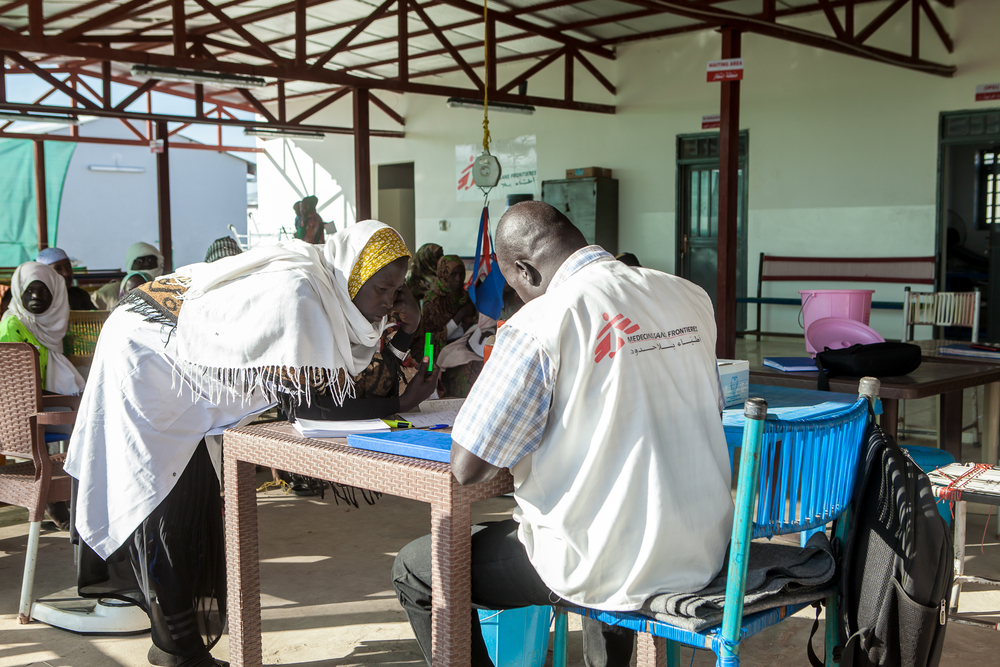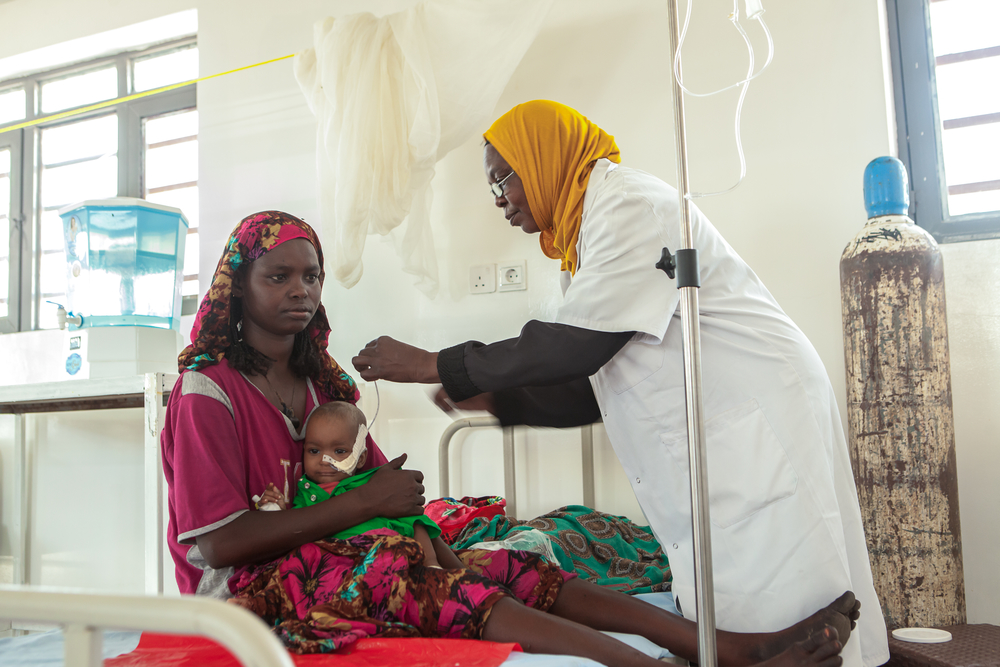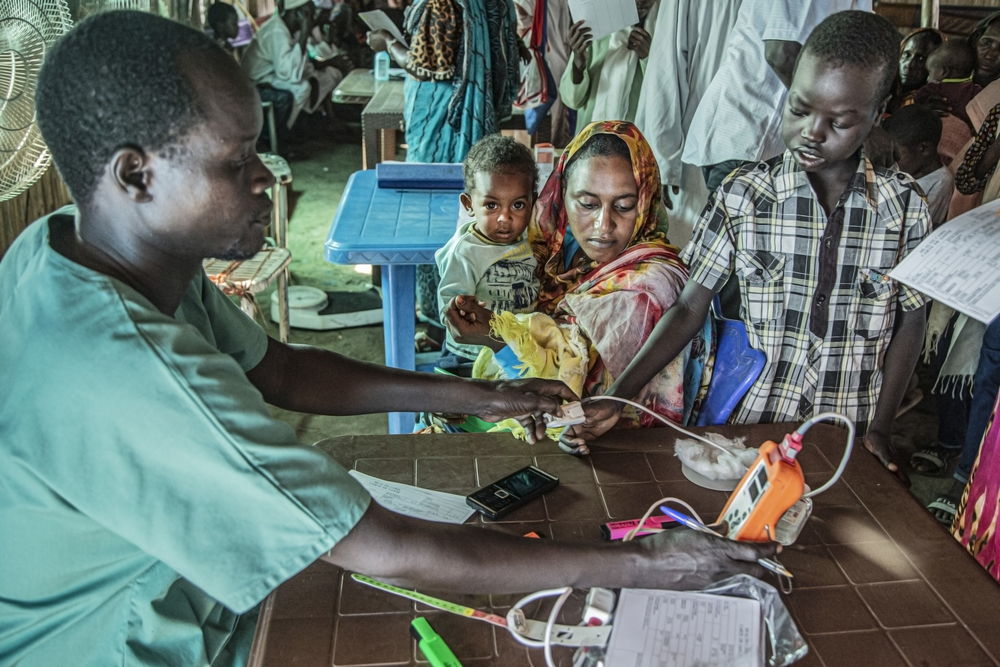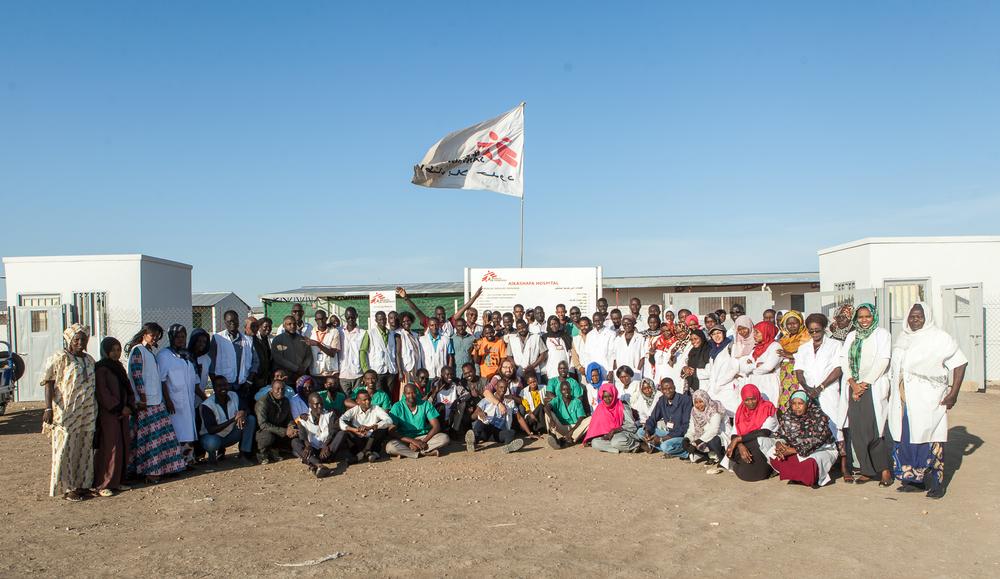The 85-bed hospital opened last December and now provides primary and secondary healthcare for patients with complicated conditions, including severely malnourished children who require hospitalisation and people with chronic infectious diseases, such as HIV and TB. Patients come from Al Kashafa, as well as from surrounding villages and eight other nearby camps.

Representatives from MSF and Sudan’s authorities inaugurated the hospital, which was built by MSF. During the ceremony they planted a tree to symbolise the fruits of their labour, as the hospital has been formally incorporated to the Ministry of Health’s public health network.
Services in Al Kashafa also include blood transfusion, emergency room, maternal, paediatric and neonatal care, mental health support, and sexual and reproductive health programmes. Severe trauma patients and pregnant women requiring a caesarean-section are transported by MSF teams to hospitals in Kosti and Al Jabaleen respectively.
“Our ambition in 2020 is to more closely monitor the situation in all refugee camps through community health workers so that urgent medical issues can be timely and adequately addressed in the Al Kashafa hospital or other facilities,” said César Pérez, field coordinator of MSF in White Nile state.
MSF started working in White Nile state in 2014, following a massive influx of refugees fleeing the civil war that began in the end of 2013 in neighbouring South Sudan. Since then MSF has implemented various activities, including vaccination campaigns, emergency responses and management of health facilities. Today, nearly 200 MSF staff work in White Nile.

According to UNHCR, White Nile state still hosts 248,000 South Sudanese refugees, with 162,000 living in camps like Al Kashafa. Across Sudan only Khartoum hosts more refugees.
“Despite the ongoing peace process in South Sudan, there has not been a significant decrease in the number of refugees in White Nile. Health and humanitarian needs remain high and hence it is crucial to continue assisting both the refugees and the local communities that accommodate them,” says Dr. Pérez.
In 2019, MSF carried out nearly 120,000 consultations in Al Kashafa – almost 10,000 a month – and admitted more than 5,000 patients. Sixty-three per cent of the patients seen in the triage area were refugees and the rest from the local community.
MSF also treated nearly 1,000 malnourished children under the age of five in the stabilisation centre and helped over 670 women give birth, nearly two babies every day. MSF enrolled 196 new patients on to its TB programme and 94 new patients on to its HIV programme.

“We thank the Ministry of Health, the Commission of Refugees and the Humanitarian Affairs Commission for their cooperation during all these years and the community of Al Kashafa for having provided the space for the construction of the hospital,” says Julia Paulsson, MSF head of mission in Sudan. “The inclusion by the Sudanese authorities of the new Al Kashafa hospital in the network of facilities of the Ministry of Health will hugely benefit the population, so that even when MSF ends its medical intervention in the area, services will continue to be available to the public.”
MSF is an international medical humanitarian organisation that was founded in 1971. Our actions are guided by medical ethics and the principles of neutrality, independence and impartiality. Assistance is offered based on medical needs, irrespective of race, religion, gender or political affiliation.
MSF has worked in Sudan since 1978. In recent years our operations have focused on five states: Al Gedaref, South Kordofan, East Darfur, North Darfur and White Nile, with emergency teams launching interventions in other areas as needed. MSF runs health facilities, which provide free quality medical care to refugees, internally displaced people and host communities.
